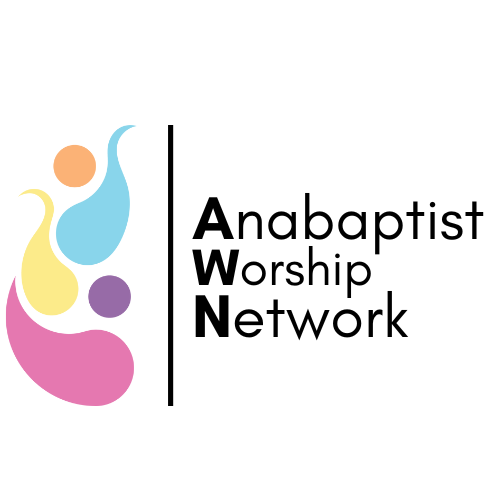Globalization, Contemporary Worship Music, and the Anabaptist Church
By Rashard Allen
In 2022, I had the honor of serving on the worship team for the Mennonite World Conference Assembly in Indonesia. The worship team consisted of local instrumentalists and an international group of ten singers. Our role was to lead corporate worship singing for the morning and evening services. Our songbook for Assembly consisted of 39 songs in at least 20 different languages. Besides the obvious care and attention given to the choosing of these beautiful worship songs for Assembly, there were three things I found particularly striking.
The first was the musical diversity of the songs spanning many cultural contexts.
The second, however, was the universality of themes within the song texts: themes of praise, thanksgiving, petition, expressions of devotion, calls to action and so on.
The third, and this one I find most fascinating, was that many of the songs had their musical roots in the Western contemporary Christian worship movement regardless of the song’s country of origin. For example, Rohmu Yang Hidup is a beautifully expressive worship song from JPCC, an Anabaptist megachurch in Jakarta affiliated with both Hillsong and Mennonite World Conference, and is one of the most popular worship songs in Indonesia. This song would be easily accessible to people who are familiar with the output of Bethel, Elevation, or other Western contemporary megachurches.
Indeed, Western contemporary worship music (to be referred to as CWM going forward) is nearly ubiquitous throughout the global church, including in the Anabaptist world.
Recently, I was in Uganda leading workshops in music and worship for the Mennonite churches there. Even in the more remote, rural villages, I encountered young people singing songs by Chris Tomlin, Matt Maher, and Hillsong artists. They knew and loved the indigenous songs of their culture, and they love contemporary styles as well. When they wrote new original songs, most often those songs were in a CWM or even African-American gospel style.
Reflecting both on my time abroad and the phenomenon of CWM and its musical style spreading globally, I am reminded of what is known as the Nairobi Statement on Worship and Culture, which states that worship and culture intersect in at least four ways: worship is transcultural, worship is contextual, worship is counter-cultural, and finally, worship is cross-cultural (for more on this, see also Voices Together Worship Leader Edition #28 “Worship and Culture”). I believe that particularly the cross-cultural aspects of worship have the potential to be a powerful unifying force in the global Anabaptist church. However, cross-cultural worship in the global church has often been a one-way street, with the West exporting en masse its worship music to non-Western contexts, with little interest in importing songs from others.
While this influence presents its share of both realized and potential problems, it also presents us with opportunity, so long as there is greater mutuality and less Western centered-ness. There is certainly a unity that is fostered when we are singing the same songs, regardless of where they come from. Being able to walk into a church in Mozambique or Colombia and hear them singing “Here I Am to Worship” creates a sense of belonging to one another, to a larger, global body of Christ. This was certainly the case when I was in Indonesia. When we sang “Here I Am to Worship” or “Way Maker” (a Nigerian worship song influenced by CWM and Nigerian popular styles), the whole assembly burst forth in praise in a way not felt at any other time in quite the same way. Similarly, the non-Western songs written in a CWM-influenced style created a familiarity which made it easy for people to embrace. On the other hand, there was also great power and encouragement felt collectively when individual communities within the Assembly burst forth in praise when singing songs native to their homeland with a more indigenous sound, like the Colombians when we sang “Tu Eres Todopoderoso”, or the Ethiopians dancing when we sang “Geta, Geta”. That cross-cultural sharing of songs is part of what made the corporate worship times at Assembly so powerful.
Perhaps the healthiest paradigm is for us as Anabaptists to be learning each other’s songs. We need more songs like “Way Maker” to cross over from Africa, South America, and Asia. This exchange would be particularly helpful with non-Western churches that have more successfully developed an Anabaptist theology within their own cultural context. Voices Together has many examples of accessible songs from many different cultures that our congregations would do well to learn. Togetherinworship.net also has a growing number of songs from Anabaptist sources around the world. Finally, I will be developing a Global YouTube playlist sometime this Spring of Anabaptist-affiliated musical ensembles. This is all so that when, as it says in Psalm 86:9, “all the nations you have made will come and worship before you, Lord; they will bring glory to your name,” we are doing so with the songs of all the nations. After all, when we get to heaven, there will be people of all Nations, every person in Christ who has ever lived. A cross-cultural exchange of our music here on earth, one that is a two-way street, serves as good practice for us.
Dr. Rashard Allen is the Director of Music and Worship at Neffsville Mennonite Church in Lancaster, PA. He is a graduate of the Robert E. Webber Institute for Worship Studies (DWS) and Perkins School of Theology (MSM), and has 20+ years of full-time experience in worship ministry. He is invested in introducing global and multi-ethnic worship music and practices to majority Anglo congregations, worship theology, and worship renewal in the North American church.

